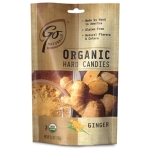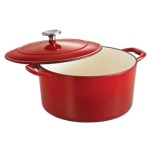“The average earnings of a professional full-time author is just £11,000.”*
*Findings of the Authors’ Licensing and Collecting Society 2014.
This is as much a message to readers as it is to all those who freely file share whether they do or don’t perceive the harm, pirates, and wannabe writers who believe a writing career will change their lives. I’m not up to date with the most recent statistics, but let’s just run over a few possibly eye-opening figures.
My father was one reader who mistakenly believed whether a writer made £1 per book or 1p, the trading of a million titles added up to ‘a lot’. Even if every author was guaranteed that number there’s a huge difference in earnings if the royalties are a pound or a penny, but the main trouble with this thinking is most writers cannot sell even close to such an amount.
Let’s look at sales:
Before the 2014 findings released I’d read articles reporting many printed, in the store, mainstream paperbacks sold on average 500 copies. Reports said celebrity-written novels selling between 100-200,000 were deemed flops owing to publisher expectations the books would retail well on celebrity status alone.
The situation can be even worse for electronic publications. I know many who never sell more than around 100 copies. I’ve been told some e-books won’t trade significantly above 200.
So which writers are making money from book sales? Those often seen in the top ten positions in the bookstores, but their success is the dream and does not include the ‘average’ writer. Which isn’t to say one cannot make a living in the industry. I know people who have given up the day job to survive on their writing income, but many have supporting spouses, and almost all say they live ‘carefully’.
One of the draws of electronic publishing in recent years was their higher than average royalty share. The usual contract for rates on print is between 7-10%. It doesn’t require a maths genius to calculate a paperback of £5.99 being approximately 60p a book earned by the author of the cover price. Understandably, royalties of 35-50% are highly attractive. When the print market got on board with e-books, there was a lot of resulting disagreements over the percentages these previously print-only companies were offering with many well-known writers demanding more favourable terms. Some of those early negotiations reached 25%–still lower than some electronic-only publishers.
Now let’s take these figures and see how the income starts dwindling in other ways:
Another pull of these markets is many sold primarily in-house so the royalty percentage received was based on the total cover price. When a distributor sells, their cut is first deducted before these contracted percentages apply between writer and publisher. We’re talking the differences between net and gross here.
To be fair prior to the existence of e-books, publishers were always distributors but one draw of e-book publishing was they did sell more in-house, translating into higher profit margins. A large portion, which usually disappeared in printing costs, found its way to the writer. Lately, I’ve been noticing these publishers immediately sending titles to multiple marketplaces so a writer’s slice cannot be construed from the full price on initial sales. One likely reason for this is that many are finding Kindle to be where most purchases now generate. Where many believed the invention of a good e-reader would increase readership, unfortunately, it took the exchange out of house. The app also allowed those who had no wish to own such a device to read on computers and tablets with the same ease. Readers like the ability to buy without difficulty and this is something Amazon does. Many publishers and writers have suffered because of simple single-click buying. I’m not claiming that this is the sole problem but I, like many, do believe it’s a contributing factor.
The distributor deducts their cut before anyone sees anything of percentages. As most distributors have clauses that allow them to set their own cover price and not the RRP of the publisher, and even the freedom to determine when a product should be available at a reduced rate, this percentage can be lowered even more.
If a £6 novel is given a 30% discount that generates £4.20. Let’s say distribution subtracts 35% of that customer’s outlay. We’re left with £2.73. If the writer’s segment is 50%, the earnings will be £1.36. If the cut is 10% that approximates to 28p.
We’ll be generous and use the average of 500 copies sold.
£1.36 x 500 = £680
28p x 500 = £140
Now, if applicable, calculate the removal of income tax.
Divide what’s left by the hours, days, months taken to create the draft. Shall we also throw in the anxious pursuit of a publisher, the editing rounds, and the promotion time put in, all of which I’m sure I’ll cover in other blogs?
For now, let’s use NaNoWriMo (National Novel Writing Month) as an example and say it’s a short novella, with a draft produced in a month and the writer is fast. Even if we round it up to a generous minimum of 50 hours of work, oh look… Based on the lower rate before tax amount provides an income of £2.80 per hour…before we take into account all the additional days required. Consider that some may take 3 months, or 6, or a year to construct a book and you quickly see your ‘average’ writer wakes up daily questioning what motivates them to do this job.
“At least writers can boost their income by attending conventions. They get paid to go, and there’s all that prestige, and they’re sure to sell a load of books at these things.”
Only recently, best-selling author of His Dark Materials trilogy, Philip Pullman withdrew from the Oxford festival, having grown tired of ‘writers expected to work for nothing’. As he rightly said, everyone else, “from the cleaners to the people who put up the marquees” get paid, so despite being a patron for the last five years, he resigned.
Now tell one of these writers he or she is ‘rolling in it’, that authors can withstand not to be paid for some of the things they do, that it’s ‘okay’ to pirate their work, that £5.99 for a full-length novel is too expensive. Better yet accept my challenge of waiting behind at a writers’ convention until you’re the only reader in a room full of authors and say it aloud. If your family doesn’t have reason to wonder why you never made it home, then do anticipate being killed in a few new releases. Many writers know where to hide the bodies.
The reality is a sad truth. There’s money to be made, but don’t expect to become rich overnight, if at all. One of the first things I was warned of when I chose to be a writer was unrealistic expectations. If fame and fortune are the main reasons to put pen to paper or hands to the keyboard, the wannabe might turn into one of those who makes the ten top slots regularly, but may also be extremely disappointed to hear he or she has only sold 200 copies. Success, like how much a book is ‘worth’, is largely subjective.
You may wish to check out these articles:
http://www.theguardian.com/books/2014/jul/08/authors-incomes-collapse-alcs-survey












